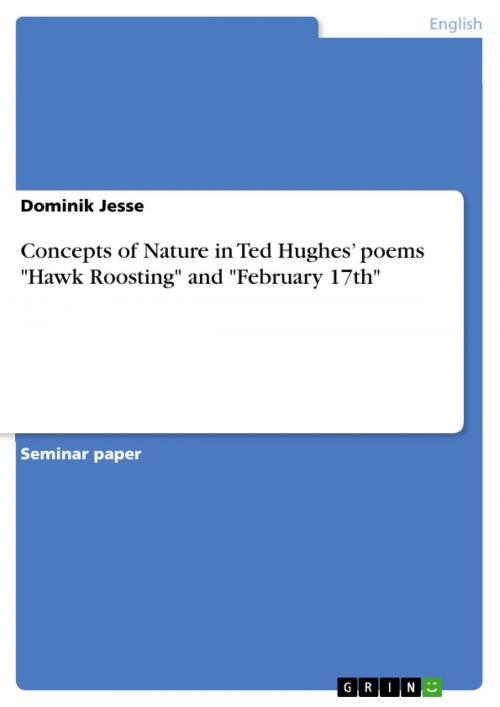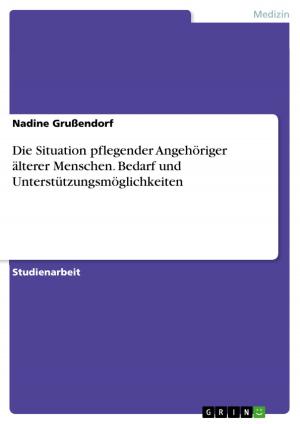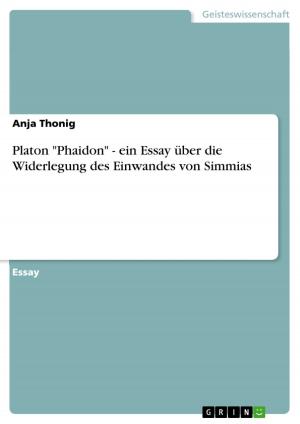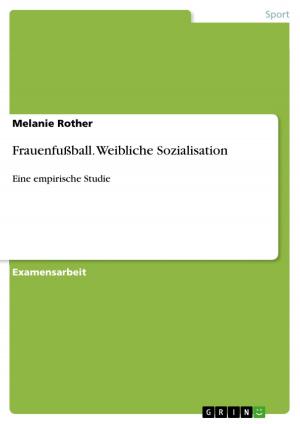Concepts of Nature in Ted Hughes' poems 'Hawk Roosting' and 'February 17th'
Fiction & Literature, Literary Theory & Criticism, British| Author: | Dominik Jesse | ISBN: | 9783656925422 |
| Publisher: | GRIN Verlag | Publication: | March 23, 2015 |
| Imprint: | GRIN Verlag | Language: | English |
| Author: | Dominik Jesse |
| ISBN: | 9783656925422 |
| Publisher: | GRIN Verlag |
| Publication: | March 23, 2015 |
| Imprint: | GRIN Verlag |
| Language: | English |
Seminar paper from the year 2014 in the subject English Language and Literature Studies - Literature, grade: 1,3, Free University of Berlin (Englische Philologie), course: Surveying English Poetry, language: English, abstract: To call Ted Hughes (1930-1998) a nature poet, should not be considered pejorative. It simply means that nature is a frequent subject in his poetry. However, while a great many of his predecessors expressed nature as the idyllic, romantic, and peaceful opposite of a denatured and technological world, Hughes highlighted the darker and more realistic aspects of nature by putting its murderousness in the foreground. Thus, the recognition of violence and aggression in nature became one of Hughes' dominant themes in numerous of his poems. Yet, looking at his work, we can state a significant change when it comes to describing nature. With Terry Gifford's analysis of Hughes's poetry in mind, two different concepts of nature can be traced which may be called 'anti-pastoral' and 'post-pastoral' (Gifford 1994: 131pp). While a lot of his early works reveal a militant opposition to any Arcadian descriptions of nature, Hughes later on creates his post-pastoral poetry in which he reconnects 'our own natural energies with those at work in the external natural world' (Gifford 1994: 129). Such classification of poetry as suggested by Gifford should not be an end in itself; instead, it ought to be relevant to all contemporary readers who take an interest in clarifying for themselves 'which writing is likely to raise the most useful questions for our time' (Gifford 2012: 69). In the following, I will devote myself to Terry Gifford's classification of Ted Hughes's poetry and illustrate whether or not it can be regarded as appropriate when it comes to the poet's concept of nature. In order not to remain in pure theory, I will concentrate on Hughes' poems Hawk Roosting and February 17th which can be referred to as palpable examples either of Hughes' anti-pastoral or post-pastoral reference to nature. For a better understanding, I will initially define the terms 'anti-pastoral' and 'post-pastoral' as used and understood by Gifford, before I will prove them in the concepts in Hawk Roosting and February 17th by also clarifying the different effect that Hughes' approaches to nature necessarily have on the reader. At the end, I will come to a conclusion in which I briefly state the results of my investigation.
Seminar paper from the year 2014 in the subject English Language and Literature Studies - Literature, grade: 1,3, Free University of Berlin (Englische Philologie), course: Surveying English Poetry, language: English, abstract: To call Ted Hughes (1930-1998) a nature poet, should not be considered pejorative. It simply means that nature is a frequent subject in his poetry. However, while a great many of his predecessors expressed nature as the idyllic, romantic, and peaceful opposite of a denatured and technological world, Hughes highlighted the darker and more realistic aspects of nature by putting its murderousness in the foreground. Thus, the recognition of violence and aggression in nature became one of Hughes' dominant themes in numerous of his poems. Yet, looking at his work, we can state a significant change when it comes to describing nature. With Terry Gifford's analysis of Hughes's poetry in mind, two different concepts of nature can be traced which may be called 'anti-pastoral' and 'post-pastoral' (Gifford 1994: 131pp). While a lot of his early works reveal a militant opposition to any Arcadian descriptions of nature, Hughes later on creates his post-pastoral poetry in which he reconnects 'our own natural energies with those at work in the external natural world' (Gifford 1994: 129). Such classification of poetry as suggested by Gifford should not be an end in itself; instead, it ought to be relevant to all contemporary readers who take an interest in clarifying for themselves 'which writing is likely to raise the most useful questions for our time' (Gifford 2012: 69). In the following, I will devote myself to Terry Gifford's classification of Ted Hughes's poetry and illustrate whether or not it can be regarded as appropriate when it comes to the poet's concept of nature. In order not to remain in pure theory, I will concentrate on Hughes' poems Hawk Roosting and February 17th which can be referred to as palpable examples either of Hughes' anti-pastoral or post-pastoral reference to nature. For a better understanding, I will initially define the terms 'anti-pastoral' and 'post-pastoral' as used and understood by Gifford, before I will prove them in the concepts in Hawk Roosting and February 17th by also clarifying the different effect that Hughes' approaches to nature necessarily have on the reader. At the end, I will come to a conclusion in which I briefly state the results of my investigation.















